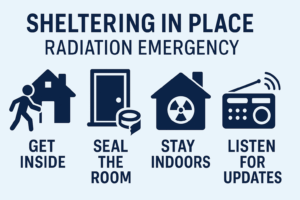
If a nuclear bomb has been detonated or a reactor has exploded, you will not have time to escape the fallout zone. Fallout can begin settling within 10–20 minutes of the explosion and can travel for miles, carried by wind. In this critical window, your best chance of survival is to shelter in place immediately.